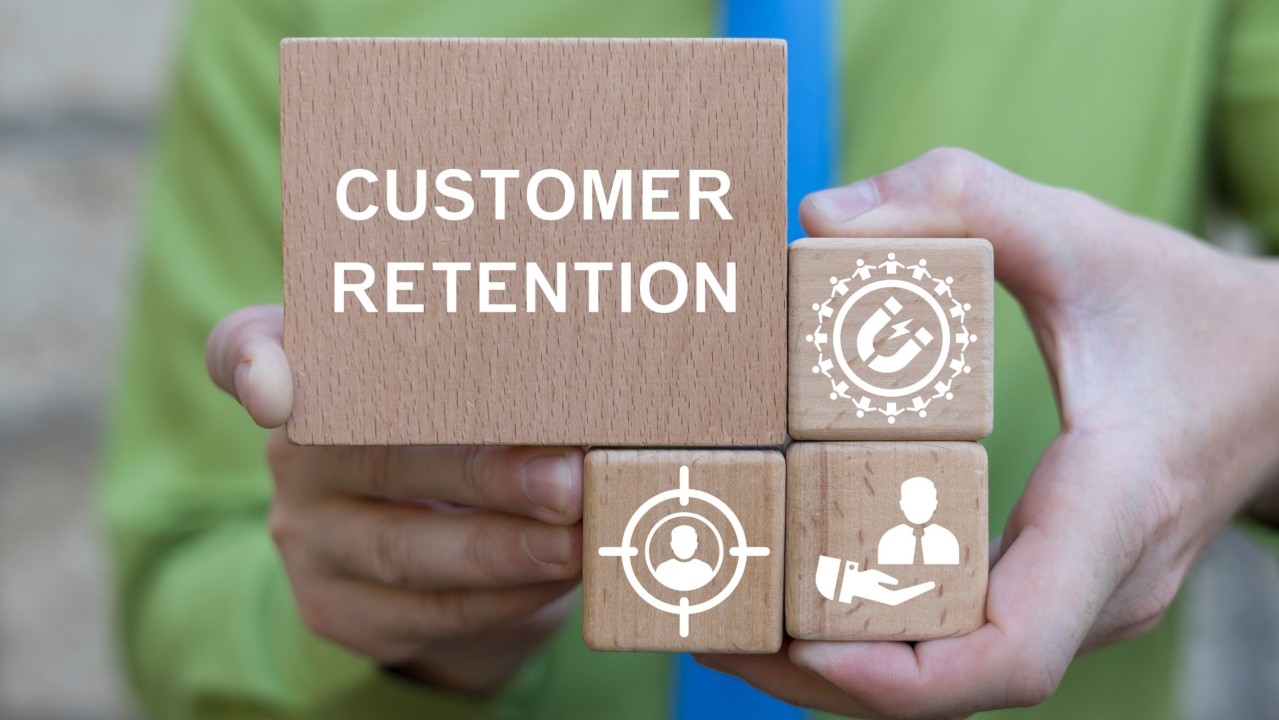News
Leveraging AI with a Digital Marketing Agency: Boosting Personalisation and Engagement
With the rise of artificial intelligence (AI), digital marketing agencies are increasingly leveraging advanced tools to create highly personalised marketing experiences, significantly enhancing customer engagement.
This article explores how AI is revolutionising digital marketing, the benefits it brings to businesses, and how agencies are integrating these technologies to deliver tailored experiences that resonate with consumers.
The Evolution of Digital Marketing: From Mass Marketing to Personalisation
Digital marketing has undergone a significant transformation over the past decade. Initially, businesses relied on mass marketing techniques that targeted broad audiences with generic messages. While this approach helped companies reach large numbers of potential customers, it often lacked relevance and failed to connect with individuals on a personal level. As a result, many marketing efforts fell short in terms of driving engagement and conversions.
The advent of digital technologies marked the beginning of a new era in marketing. With the rise of social media, search engines, and online analytics, businesses gained access to vast amounts of data about their customers’ behaviours, preferences, and interests. This data opened the door to a more personalised approach, allowing companies to tailor their marketing messages to individual customers based on their unique characteristics.
However, personalisation at scale posed a significant challenge. While it was possible to segment audiences and create targeted campaigns, the process was often time-consuming and resource-intensive. This is where AI comes into play, offering digital marketing agencies the tools to automate and optimise personalisation efforts, making it possible to deliver highly relevant content to each customer in real-time.
The Role of AI in Digital Marketing
AI encompasses a range of technologies that enable machines to perform tasks that typically require human intelligence, such as learning, reasoning, problem-solving, and decision-making. In the context of digital marketing, AI can be used to analyse vast amounts of data, identify patterns, and predict customer behaviour. This information can then be used to create personalised marketing experiences that are more likely to resonate with individual customers.
AI-driven personalisation goes beyond simple segmentation. Instead of grouping customers into broad categories, AI can analyse data at the individual level, allowing marketers to create unique experiences for each customer. For example, AI can analyse a customer’s browsing history, purchase behaviour, and social media activity to determine their preferences and interests. This information can then be used to deliver personalised product recommendations, tailored email campaigns, and targeted advertisements that are more likely to capture the customer’s attention.
Moreover, AI can optimise the timing and delivery of marketing messages. By analysing data on when customers are most likely to engage with content, AI can determine the best times to send emails, display ads, or post on social media. This ensures that marketing messages reach customers when they are most receptive, increasing the likelihood of engagement.
How Digital Marketing Agencies Are Integrating AI
Digital marketing agencies are at the forefront of the AI revolution, leveraging advanced tools and technologies to create personalised experiences for their clients’ customers. Here are some of the key ways in which agencies are integrating AI into their marketing strategies:
1. AI-Powered Customer Insights
One of the most significant advantages of AI in digital marketing is its ability to analyse vast amounts of data and generate actionable insights. Digital marketing agencies use AI-powered analytics tools to gain a deep understanding of their clients’ customers, including their demographics, preferences, and behaviours. These insights are then used to create highly targeted marketing campaigns that are tailored to the specific needs and interests of each customer.
For example, AI can analyse customer data from multiple sources, such as social media, website interactions, and purchase history, to create detailed customer profiles. These profiles can include information on a customer’s preferred communication channels, the types of products they are most likely to purchase, and the content they are most likely to engage with. Armed with this information, agencies can develop personalised marketing strategies that resonate with individual customers and drive engagement.
In the UK, businesses that have embraced AI in their marketing efforts have seen significant benefits. According to a report by PwC, AI has the potential to contribute up to £232 billion to the UK economy by 2030, with the retail and consumer goods sectors expected to be among the biggest beneficiaries. This highlights the growing importance of AI in driving business growth and competitiveness in the digital age.
2. Personalised Content Creation
Content is at the heart of any successful digital marketing strategy. However, creating personalised content for each customer can be a daunting task, especially for businesses with large and diverse audiences. AI-powered content creation tools offer a solution to this challenge by automating the process of generating personalised content at scale.
These tools use natural language processing (NLP) and machine learning algorithms to analyse customer data and generate content that is tailored to the preferences and interests of individual customers. For example, AI can analyse a customer’s browsing history and social media activity to determine the topics they are most interested in. It can then generate blog posts, social media updates, and email newsletters that are specifically tailored to those interests.
AI can also optimise content for different channels and formats. For example, AI tools can automatically generate social media posts that are optimised for different platforms, such as Facebook, Twitter, and Instagram. This ensures that content is delivered in a format that is most likely to engage customers on each platform.
3. AI-Driven Customer Segmentation
Customer segmentation is a crucial aspect of any personalised marketing strategy. By grouping customers based on shared characteristics, businesses can create targeted campaigns that are more likely to resonate with specific audiences. However, traditional segmentation methods often rely on broad categories, such as age, gender, or location, which may not capture the full complexity of customer behaviour.
AI-driven customer segmentation offers a more sophisticated approach by analysing data at a granular level and identifying patterns that may not be immediately apparent. For example, AI can analyse a customer’s purchase history, browsing behaviour, and social media activity to identify micro-segments based on specific interests or behaviours. These micro-segments can then be targeted with highly personalised marketing messages that are tailored to their unique characteristics.
This approach has proven to be highly effective in driving engagement and conversions. A study by Accenture found that 91% of consumers are more likely to shop with brands that provide personalised offers and recommendations. By leveraging AI-driven customer segmentation, digital marketing agencies can help their clients deliver the personalised experiences that customers crave, ultimately boosting engagement and driving sales.
4. Predictive Analytics and Personalisation
Predictive analytics is another powerful AI tool that digital marketing agencies are using to enhance personalisation efforts. By analysing historical data and identifying patterns, predictive analytics can forecast future customer behaviour and preferences. This information can then be used to create personalised marketing campaigns that anticipate customers’ needs and preferences before they even arise.
For example, predictive analytics can be used to identify customers who are likely to churn and deliver targeted retention campaigns that address their specific concerns. It can also be used to predict which products or services a customer is most likely to purchase next, allowing businesses to deliver personalised product recommendations that are more likely to result in a sale.
In addition to driving engagement, predictive analytics can also help businesses optimise their marketing spend. By identifying the most valuable customers and predicting their future behaviour, businesses can allocate their marketing resources more effectively, ensuring that they are targeting the right customers with the right messages at the right time.
5. Chatbots and AI-Driven Customer Support
Customer support is a critical component of the customer experience, and AI-powered chatbots are revolutionising the way businesses interact with their customers. Chatbots use natural language processing and machine learning algorithms to understand customer queries and provide instant responses, 24/7. This not only improves the customer experience by providing quick and efficient support but also frees up human agents to focus on more complex issues.
Digital marketing agencies are increasingly integrating AI-driven chatbots into their clients’ websites, social media channels, and messaging apps to provide personalised customer support. For example, chatbots can be programmed to deliver personalised product recommendations based on a customer’s browsing history or past purchases. They can also provide personalised responses to customer queries, ensuring that each customer receives the information they need in a timely and relevant manner.
In the UK, the adoption of AI-powered chatbots is on the rise. A survey by Statista found that 40% of UK consumers had interacted with a chatbot in the past year, with 60% of those interactions occurring on websites or messaging apps. This highlights the growing importance of AI-driven customer support in enhancing the customer experience and driving engagement.
6. Programmatic Advertising and Personalisation
Programmatic advertising is another area where AI is making a significant impact. Programmatic advertising refers to the automated buying and selling of online advertising space, using AI algorithms to target ads to specific audiences in real-time. This approach allows businesses to deliver highly personalised ads to the right customers at the right time, maximising the effectiveness of their advertising spend.
Digital marketing agencies are using programmatic advertising to create personalised ad campaigns that are tailored to the preferences and behaviours of individual customers. For example, AI algorithms can analyse a customer’s browsing history, purchase behaviour, and demographic information to determine which ads are most likely to resonate with them. These ads can then be delivered in real-time as the customer browses the web, ensuring that they are exposed to relevant and personalised content.
The effectiveness of programmatic advertising is evident in the results it delivers. According to the Internet Advertising Bureau (IAB), programmatic advertising accounted for 84% of all digital display advertising spend in the UK in 2020. This highlights the growing importance of AI-driven personalisation in the digital advertising landscape and its potential to drive engagement and conversions.
7. AI-Powered Email Marketing
Email marketing remains one of the most effective channels for driving customer engagement and conversions. However, the success of email campaigns depends on their ability to deliver relevant and personalised content to each recipient. AI-powered email marketing tools offer a solution to this challenge by automating the process of creating and delivering personalised email campaigns.
These tools use AI algorithms to analyse customer data and determine the types of content that are most likely to resonate with each recipient. For example, AI can analyse a customer’s purchase history and browsing behaviour to generate personalised product recommendations. It can also optimise the timing of email delivery, ensuring that emails are sent when recipients are most likely to open and engage with them.
In addition to personalising content, AI-powered email marketing tools can also optimise email subject lines, preview text, and calls to action to maximise open rates and click-through rates. This level of personalisation can significantly improve the effectiveness of email campaigns, driving higher engagement and conversions.
The Benefits of AI-Driven Personalisation for Businesses
The integration of AI into digital marketing strategies offers a range of benefits for businesses, particularly when it comes to personalisation and engagement. Here are some of the key advantages:
1. Increased Customer Engagement
Personalisation is key to capturing customers’ attention and driving engagement. By delivering relevant and personalised content, businesses can create more meaningful interactions with their customers, ultimately increasing engagement. AI-driven personalisation allows businesses to deliver the right content to the right customer at the right time, maximising the likelihood of engagement.
2. Improved Customer Experience
A personalised customer experience is essential for building long-term relationships with customers. By understanding each customer’s unique preferences and needs, businesses can deliver tailored experiences that meet their expectations and enhance their overall satisfaction. AI-powered personalisation tools enable businesses to create seamless and personalised customer journeys, from the first point of contact to post-purchase support.
3. Higher Conversion Rates
Personalised marketing campaigns are more likely to result in conversions, whether that be a purchase, sign-up, or other desired actions. By delivering relevant and timely content, businesses can guide customers through the buying journey and encourage them to take action. AI-driven personalisation can also help businesses identify high-value customers and target them with tailored offers, increasing the likelihood of conversion.
4. Optimised Marketing Spend
AI-driven personalisation allows businesses to allocate their marketing resources more effectively. By identifying the most valuable customers and predicting their future behaviour, businesses can focus their marketing efforts on the customers who are most likely to engage and convert. This ensures that marketing spend is used efficiently, maximising return on investment (ROI).
5. Enhanced Competitive Advantage
In today’s competitive digital landscape, businesses that can deliver personalised experiences have a significant advantage over their competitors. AI-driven personalisation allows businesses to stand out from the crowd by delivering content that resonates with individual customers. This can lead to increased customer loyalty, higher retention rates, and a stronger brand reputation.
The Future of AI in Digital Marketing
The integration of AI into digital marketing strategies is still in its early stages, and the potential for future growth is immense. As AI technologies continue to evolve, digital marketing agencies will have access to even more advanced tools for personalisation and engagement. Here are some trends to watch for in the future of AI-driven digital marketing:
1. Hyper-Personalisation
As AI algorithms become more sophisticated, the level of personalisation they can deliver will continue to improve. In the future, businesses will be able to create hyper-personalised experiences that are tailored to the specific needs and preferences of each customer. This could include personalised pricing, customised product recommendations, and even personalised user interfaces on websites and apps.
2. AI-Powered Creativity
AI is already being used to automate certain aspects of content creation, such as generating product descriptions and social media posts. In the future, AI could play an even larger role in the creative process, helping businesses develop innovative and engaging content that resonates with their audiences. This could include AI-generated videos, interactive content, and personalised visual experiences.
3. Voice and Visual Search
Voice and visual search are rapidly gaining popularity, with consumers increasingly using voice assistants and image recognition tools to find products and information online. AI will play a key role in optimising digital marketing strategies for these new search methods, ensuring that businesses can deliver personalised content to customers through voice and visual search channels.
4. Ethical AI and Data Privacy
As AI-driven personalisation becomes more prevalent, businesses will need to navigate the complex issues of data privacy and ethics. Consumers are becoming increasingly aware of how their data is being used, and businesses will need to ensure that their AI-driven marketing strategies are transparent, ethical, and compliant with data protection regulations. This will be particularly important in the UK, where the General Data Protection Regulation (GDPR) sets strict standards for data privacy.
AI is transforming the way businesses approach digital marketing, offering new opportunities for personalisation and engagement. By leveraging AI-powered tools, digital marketing agencies can create highly personalised marketing experiences that resonate with individual customers, drive engagement, and boost conversions. As AI technologies continue to evolve, the potential for even more advanced personalisation and engagement strategies will only grow, making AI an essential component of any successful digital marketing strategy.
In the UK, the adoption of AI in digital marketing is on the rise, with businesses recognising the significant benefits it offers in terms of customer engagement and business growth. As we move into the future, businesses that embrace AI-driven personalisation will be well-positioned to thrive in the competitive digital landscape, delivering exceptional customer experiences that set them apart from their competitors.





The Ultimate Social Media Guide
With the ever-growing power of social media, we use the latest techniques, video, and animation software to craft eye-catching social media assets that make your brand pop. Our designers, wielding Adobe Creative tools, create distinctive animations and graphics to illuminate your brand story and highlight your products or services. Want a unique design? No problem – we also offer bespoke designs to match your brand aesthetic.